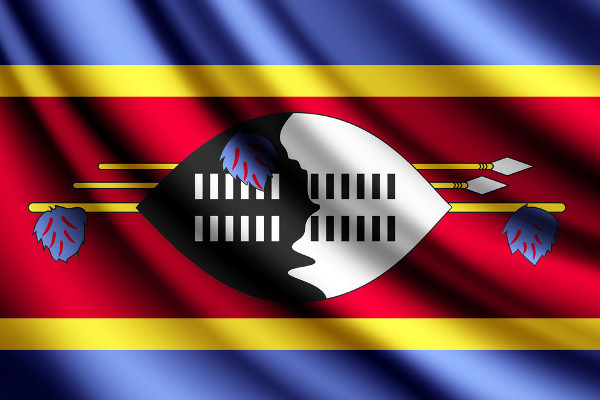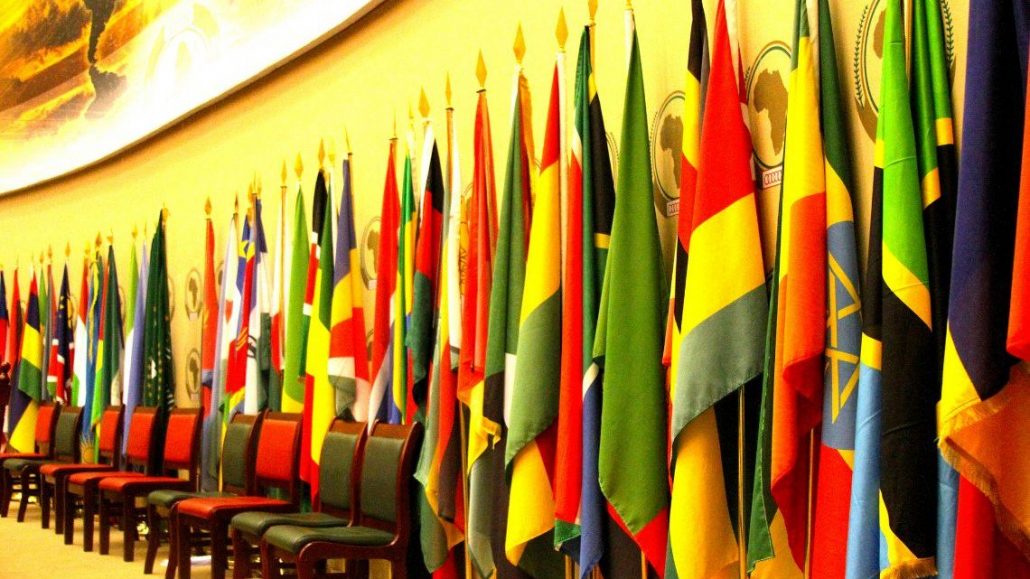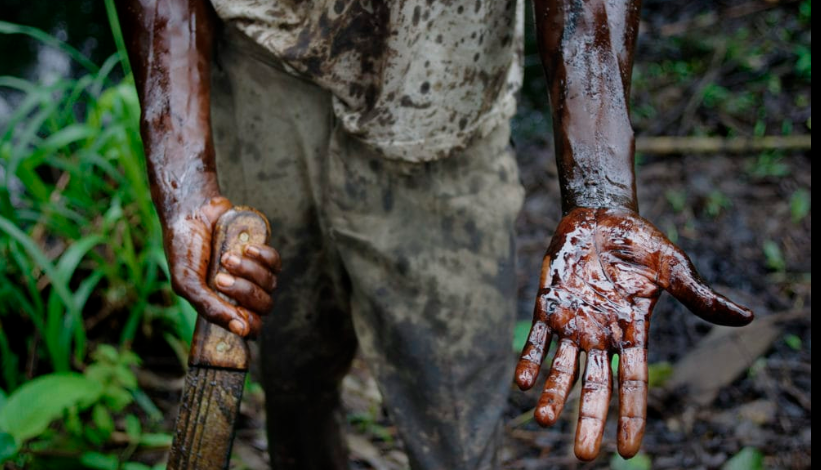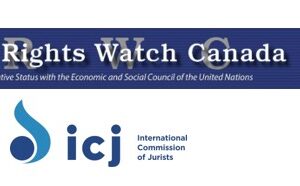
Jun 30, 2021 | News
Authorities in eSwatini must avoid excessive force and ensure freedom of expression and association in public as well as online as the country faces ongoing protests, said the International Commission of Jurists (ICJ) today

Apr 26, 2021 | News
Today the International Commission Jurists called on the Zimbabwean authorities to allow for detained Member of Parliament, Joana Mamombe to be returned to hospital in order to for her to receive essential medical care.
On Thursday 22 April, MP Mamombe, who is a Member of the main opposition party Movement for Democratic Change (MDC) Alliance, was rushed to hospital from prison after complaining of serious illness. The following day, against a doctor’s advice that she remain under medical care at Parktown Hospital, prison officials forced her to leave by prison officials who returned her to prison. A video shared widely on social media shows an ailing and frustrated Mamombe, stating that she was in pain and would not leave the hospital as she just received injections.
“The Zimbabwean prison officials have abandoned their primary obligation to ensure the humane treatment of a person in its custody. They have failed Joana Mamombe in refusing to provide her access to medical care and treatment, and placed her life and well-being in jeopardy,” said Kaajal Ramjathan-Keogh, ICJ Africa director.
The ICJ has previously expressed concern about the lawfulness of Joana’s Mamombe arrest and detention (see background below).
Background
The ICJ has been monitoring the situation around the “weaponization” of criminal law in Zimbabwe, as well as the treatment of remand detainees and convicted persons. In May 2020, Mamombe along with opposition activists Netsai Marova and Cecilia Chimbiri were arrested and detained for attending a protest during Covid-19 lockdown. They alleged that they were subsequently abducted from police custody by State agents, sexually assaulted, and forced to drink each other’s urine. They were missing for two days following this abduction before they were discovered on a roadside 90km away from Harare. They were subsequently arrested for allegedly having lied about their treatment in custody and for “faking” their abduction. Since May 2020, the three women have been arrested and detained several more times. Despite Mamombe appearing in court 129 times over the last 12 months, she has been repeatedly denied bail.
Under Article 50(d) of the Zimbabwean Constitution, any person who is detained, including a sentenced prisoner, has the right to receive medical treatment. This requirement is provided for under several international treaties to which Zimbabwe is a party, including the International Covenant on Civil and Political Rights – (Articles 6, 7 and 10), the International Covenant on Economic, Social and Cultural Rights (Article 12), the UN Convention against Torture (Article 16), and the African Charter on Human and People’s Rights. The revised UN Standard Minimum Rules for the Treatment of Prisoner (Mandela Rules) provides in Rule 27 that “All prisons shall ensure prompt access to medical attention in urgent cases. Prisoners who require specialized treatment or surgery shall be transferred to specialized institutions or to civil hospitals” and that “Clinical decisions may only be taken by the responsible health-care professionals and may not be overruled or ignored by non-medical prison staff.”
These rules were endorsed by the African Commission on Human and Peoples’ Rights in its Resolution on the Collaboration between the African Commission on Human and Peoples’ Rights and Partners on Promoting the revised United Nations Standard Minimum Rules for the Treatment of Prisoners.
The ICJ has observed with concern ongoing violations of the right to health of prisoners and remand detainees by the Zimbabwean authorities. For instance, despite the risks that are posed by COVID-19 in prisons, detainees were not allowed to sanitize their prison cells or wear adequate PPE in prison.
Contact:
Kaajal Ramjathan-Keogh, ICJ Africa Director, Kaajal.Keogh(a)icj.org
Tanveer Jeewa, Media and Legal Consultant, Tanveer.Jeewa(a)icj.org

Mar 24, 2021
Women human rights defenders are at a heightened risk of sexual or gender-based violence as a result of the nature of their work in defence of human rights, the ICJ said in a new report published today.
The 28-page report Sexual and Gender-Based Violence in Zimbabwe: Women Human Rights Defenders’ Experiences and Legal Challenges concluded that gaps within the Zimbabwean legal framework on sexual offences hinder women human rights defenders from seeking and receiving redress for sexual or gender-based violence suffered in the course of or due to the nature of their work.
The report explores the main legal gaps identified and makes recommendations to a number of actors, including the Zimbabwe Republic Police, the Judicial Service Commission and Parliament of Zimbabwe.
“The police, the Judicial Service Commission, and ultimately the Parliament must improve their approach to SGBV for the benefit of all women, including women human rights defenders,” said Blessing Gorejena, ICJ Senior Legal Adviser.
In 2019, the ICJ commissioned a study of the experiences of women who are human rights defenders in Zimbabwe based on the following research questions:
- Does the work of WHRDs increase their risk of being subjected to sexual and gender-based violence (SGBV)?
- What are the key legal challenges that WHRDs encounter when seeking redress for SGBV perpetrated against them due to or as a result of their work?
This report builds on the discussions held at a regional colloquium organized by the ICJ in 2015 in Eswatini. Those discussions were presented in a reflection paper entitled Sexual and Gender-based Violence, Fair Trial Rights and the Rights of Victims: Challenges in Using Law and Justice Systems Faced by Women Human Rights Defenders.
Contact
Blessing Gorejena, Senior Legal Adviser and Team Leader of ICJ Zimbabwe Project, e: blessing.gorejena(a)icj.org
Elizabeth Mangenje, Legal Adviser, e: elizabeth.mangenje(a)icj.org
Download
Zimbabwe-SGBV-WHRD-Publications-Reports-Thematic reports-2021-ENG

Feb 19, 2021 | Advocacy, News, Open letters
In a letter of 17 February, the ICJ and ZimRights called on the Chairperson of the African’s Commission on Human and Peoples’ Rights Working Group on Economic, Social and Cultural Rights to address Zimbabwe’s failure to meet its obligations to protect the rights of life and health of its population in respect of its COVID-19 vaccine policies.
Zimbabwe had failed to produce, publish and widely disseminate a comprehensive plan on vaccine acquisition and distribution. These are also necessary measures to secure the life and health of those living in neighbouring countries of Zimbabwe and therefore of broader concern within the Southern African Development Community in particular.
The ICJ and ZimRights called for an intervention of the Working Group and the wider African Commission with a view to ensure that vital information is made available by the Government of Zimbabwe about its national plan for COVID-19 vaccine procurement, distribution and roll-out including any resources it has set aside for these efforts.
To read the full letter, click
here.

Feb 12, 2021 | Cases, News
Today, the ICJ and The Corporate Responsibility (CORE) Coalition UK, welcomed the judgment of the UK Supreme Court in the case Okpabi et al. v Royal Dutch Shell plc et al as a major step forward for those seeking access to justice for corporate abuses in the Niger Delta and around the world.
The Supreme Court judgment allows the case to proceed in the UK courts, reversing earlier decisions by the Court of Appeal and the High Court, and reaffirming the precedent established in its own previous decision in Lungowe et al v Vedanta resources (2019).
Carlos Lopez, Senior Legal Advisor at the ICJ, said:
“The emphasis of the Supreme Court on the relevance of evidence from internal company documents is of utmost importance for the proper assessment of whether the parent company intervened, advised or controlled the relevant activities of its subsidiary that caused harm, including notably human rights abuses and environmental destruction.
“This should have an impact on future similar proceedings before courts in the UK and elsewhere.”
Mark Dearn, Director of CORE, said:
“This landmark ruling is a vital step towards justice for some 50,000 claimants from the Ogale and Bille communities. It sends a clear message to multinational corporations like Shell – you have a duty of care and you will be held to account for human rights abuses and environmental damage caused by subsidiaries you control.
“Shell brazenly claimed in court that the oil spills were due to ‘uniquely Nigerian problems’. But the unique problem long faced by communities in this region is Shell’s impunity, as it has repeatedly tried to dodge accountability for its catastrophic destruction of the environment and people’s livelihoods.”
“It’s now crucial that governments step up to the plate to create new corporate accountability laws so that businesses know exactly what is expected of them.”
In Vedanta, the Court affirmed that a parent company that sufficiently intervenes, controls or advises the relevant operations of its subsidiary may bear liability for the breach of its duty of care towards the people affected by those operations.
Okpabi and other nearly 50,000 claimants in total – sued Royal Dutch Shell (RDS -the UK based parent company) and its Nigerian subsidiary Shell Petroleum Development Corporation (SPDC) for their alleged involvement in the leakage of oil pipelines which destroyed their farming land, wiped out fish stocks and poisoned drinking water in the Niger Delta, Nigeria.
In 2018 the Court of Appeal dismissed the claimants’ case, but the claimants appealed to the Supreme Court. The ICJ and the CORE Coalition intervened before the Supreme Court.
The Supreme Court has allowed the claim to proceed, focusing on whether the claim had a real prospect of success and the high relevance of the internal company documents for a proper assessment.
Find the judgment here.
Notes to Editors:
- This case was first launched in 2015 in the UK High Court. For a timeline of the case’s passage through the UK court system, see here.
- The ICJ and CORE Coalition submitted a legal brief to the Supreme Court setting out the applicability of comparative law and standards regarding companies’ responsibilities in relation to human rights and environmental protection. These standards showed that Royal Dutch Shell PLC (Shell) could have duty of care in relation to the communities affected by its Nigerian subsidiary’s activities.
- In 2018 the Court of Appeal dismissed the claimants’ case, ruling that Shell did not exercise sufficient control over its subsidiary SPDC for Shell possibly to hold a duty of care towards those affected by the oil spills.
- The Supreme Court judgment reverses that judgment, cautioning against dismissing such claims in “mini-trials” without proper access to all relevant facts and evidence that are in great part in the power of the company. The judgment clarifies the evidential threshold needed for the courts to hear such cases in the UK: “The resolution of the jurisdictional challenge depended upon whether the appellants’ claim satisfied the summary judgment test of real prospect of success.” (para 127 ref. Vedanta at para 45)
- In another section the Court also corrected the Court of Appeal’s view that the promulgation by a parent company of group wide policies or standards can never in itself give rise to a duty of care, saying: “that is inconsistent with Vedanta. Group guidelines … may be shown to contain systemic errors which, when implemented as of course by a particular subsidiary, then cause harm to third parties.” (para 143)
- In Lungowe v Vedanta Resources plc, which CORE and the ICJ similarly filed a joint intervention, the Supreme Court ruled that a duty of care was owed by the UK parent company, Vedanta. A settlement was subsequently reached. As the Supreme Court notes, this ruling was “very relevant to both the procedural and the substantive issues raised on this [Okpabi v Shell] appeal”.









